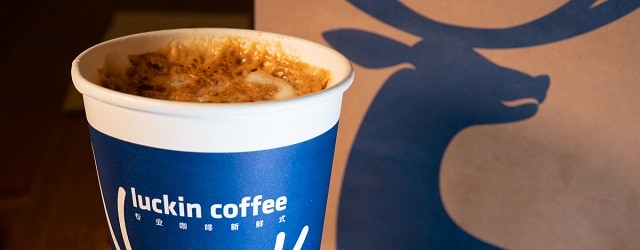The scandal reignited long-standing concerns over accounting standards at US-listed Chinese companies.

Since its founding in 2017, Starbucks challenger Luckin Coffee has expanded at breakneck speed, opening more than 4,500 stores across China and debuting on the Nasdaq with an IPO that tripled from $17 per share to over $50 in just a few months.
But its impressive rise proved short-lived when an internal investigation this April revealed that the company’s chief operating officer inflated sales by 2.2 billion yuan ($310 million) in the final three quarters of last year.
The price of Luckin’s stock plummeted by more than 80%. Things became worse days later, when reports came out that company founder Lu Zhengyao had defaulted on a $518 million margin loan from a consortium of lenders. Morgan Stanley, along with Credit Suisse and Haitong Group, stand to suffer the largest share of the losses, while Barclays, Goldman Sachs and China International Capital Corporation have smaller exposures.
The scandal reignited long-standing concerns over accounting standards at US-listed Chinese companies. “The numbers just did not add up,” says Lucy Chen, professor of accountancy and information systems at Villanova University School of Business. “No matter whether Luckin is an isolated case or not, it will have the spillover effect to shake investors’ confidence, given the opaque audit environment and the tension between the US and China in the trade war and other areas.”



